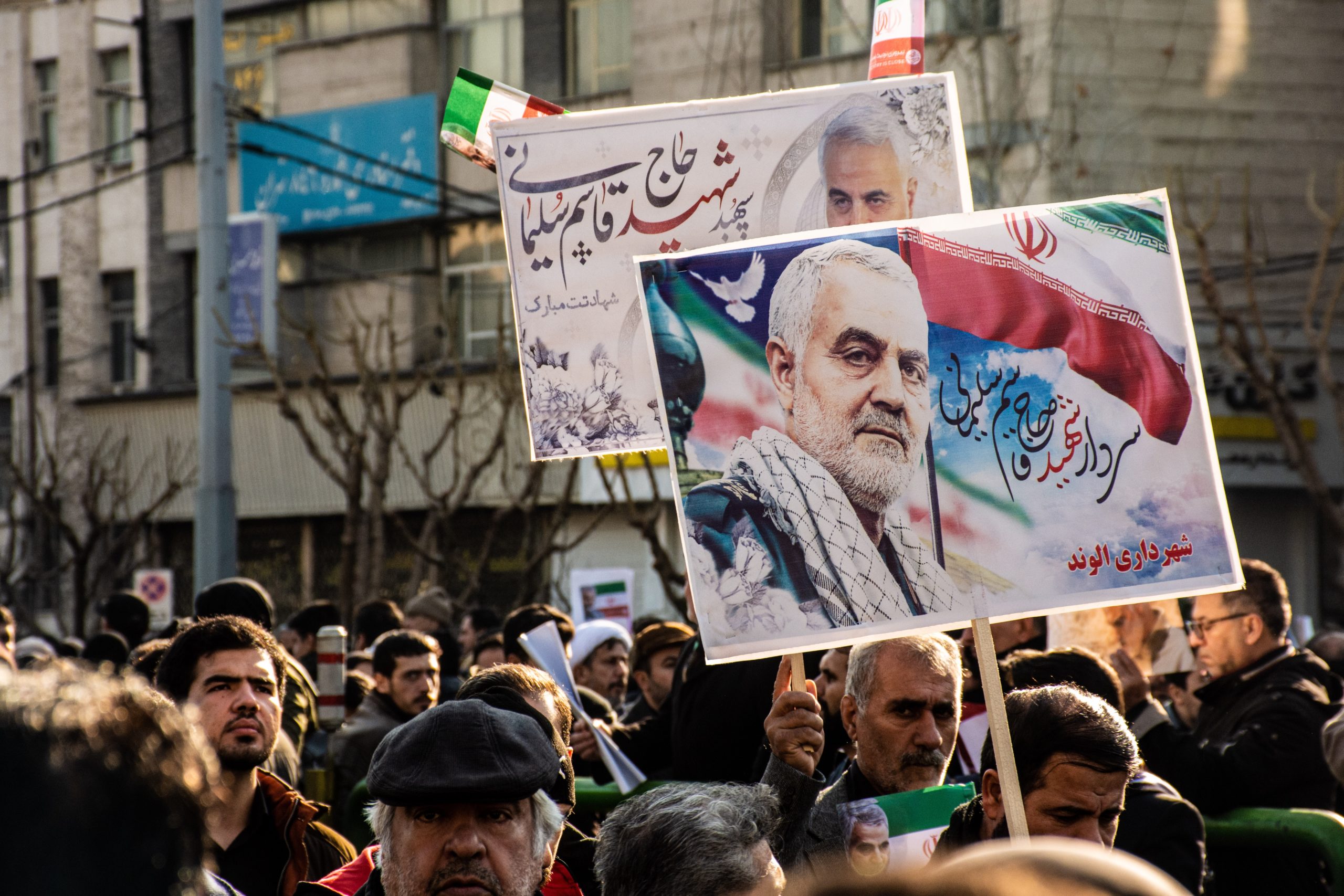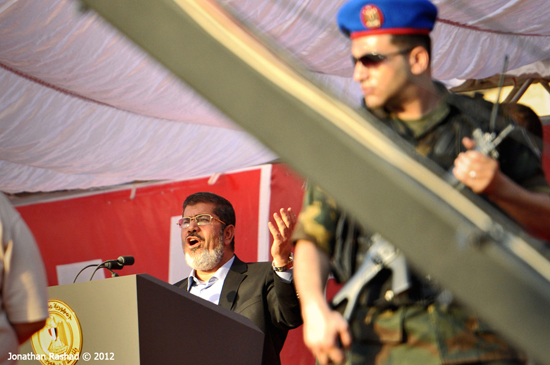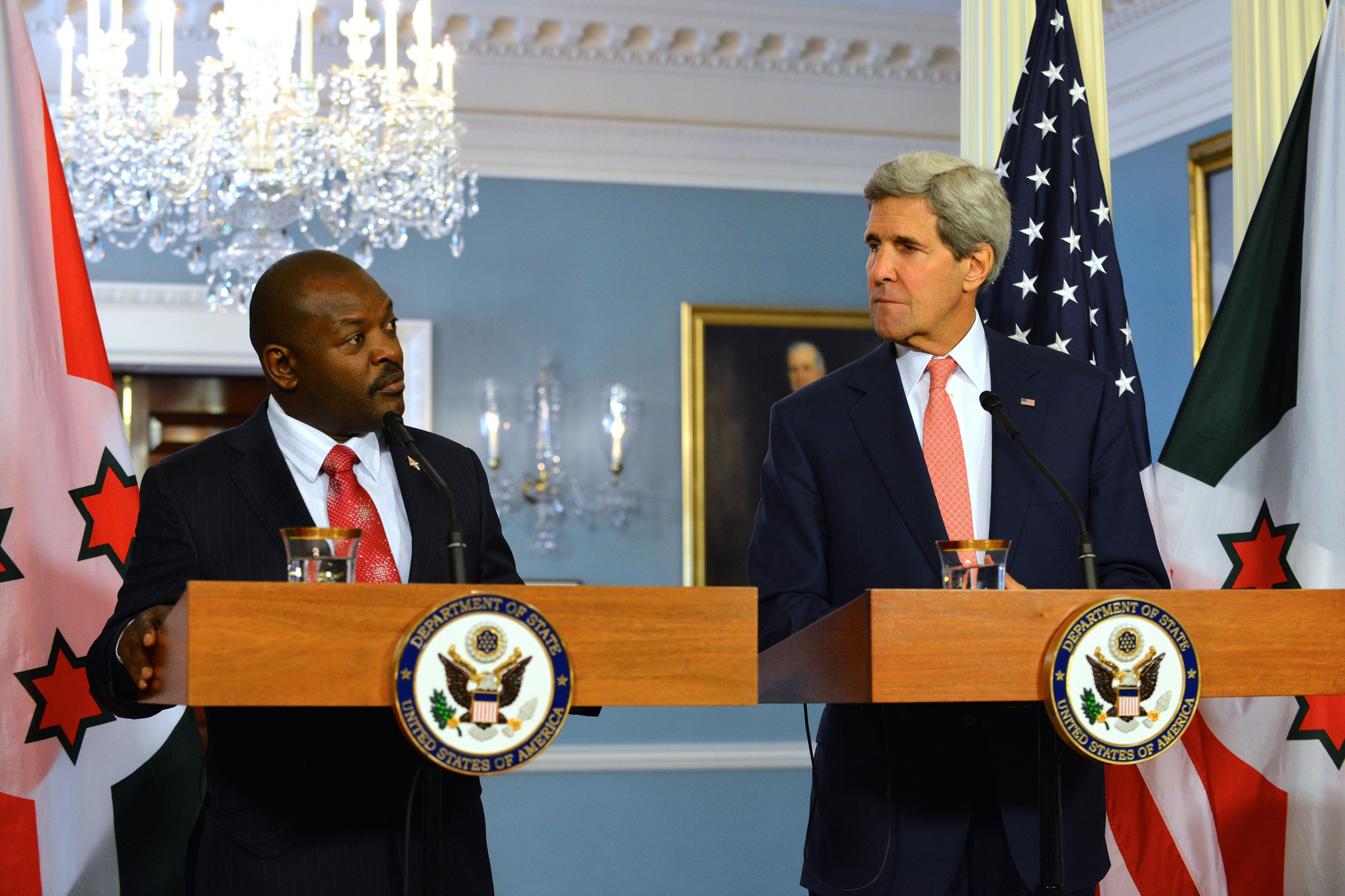By Valerie Morkevicius and Danielle Lupton
The United States recently launched a targeted drone strike, killing Qassem Soleimani. Soleimani was by no accounts a “good guy.” He spent a lifetime in Iran’s Revolutionary Guard and the last 20 years commanding the elite Quds Force. He was the mastermind behind Iran’s efforts to create an arc of influence stretching from Lebanon to Yemen. His forces trained and supplied local proxies that were responsible for thousands of deaths across the Middle East. The Quds Force carried out assassination attempts against Israeli and Saudi officials in the US, India, and Germany, and participated in the brutal suppression of domestic dissent in Iran.
There is no doubt that Soleimani was not only responsible for past crimes, but was actively plotting additional attacks against the US and its allies. But that alone is not enough to ethically justify his killing.
The Soleimani killing falls into the realm of “jus ad vim”—the use of force short of war. In the just war tradition, the ethical soundness of tactical decisions is evaluated by considering six questions. In order for the targeted killing of Soleimani to be ethically justifiable, it must be able to satisfactorily answer all of them. This attack fails to do so on multiple accounts.
- Legitimate authority
Has the military operation been ordered by an authority possessing the right to do so?
In this case, the US president, as the supreme commander of the US military, does indeed possess the right to order the use force. However, this is complicated by the fact that the attack was carried out on Iraqi soil without Iraqi government approval or involvement; without the approval of the United Nations Security Council; and without explicit approval from Congress. While these are certainly sticky legal issues, from the perspective of just war thinking, the ethical authority to use force lies with the sovereign, whose duty is to uphold order.
- Just cause
Has the party against whom we plan to use force committed a serious wrong that needs to be righted?
Wars should be fought for the sake of peace, and the use of force short of war should keep this injunction in mind. One can construct a case, without too much difficulty, that the use of force short of war could be justified on the basis of Iran’s support for violent and destabilizing proxies in the region. And Soleimani directly participated in such violence.
- Right intent
Is our stated reason for using force—what we claim is our just cause—our actual motivation?
A just cause can be nullified if it is not the real motivation for one’s actions. A leader’s true intentions, however, can be difficult to discern. The US has stated that the attack was meant to deter “future Iranian attacks” against Americans. But some have questioned the timing of the killing, particularly as we have known of Soleimani’s activities for over a decade. If the decision to use force was driven by a desire to look tough, to distract from the impeachment process, or to score points with voters as the election cycle heats up, it would not be justified under the principle of right intent.
- Last resort
Have other non-violent options been exhausted?
Because the use of force inherently risks human lives, the decision to use force should always be taken as a last resort. While the Trump administration has been criticized for walking away from the Joint Comprehensive Plan Of Action, it has nonetheless made some efforts to alter Iran’s behavior without using military force, primarily through the imposition of sanctions.
- Proportionality
Are the harms likely to result from the use of force proportionate to the good one hopes to achieve?
It is on this point that any attempt to ethically justify Soleimani’s killing begins to crumble. The harms likely to result from the attack are numerous and serious, especially as both Iran and the US escalate the conflict.
Iran seems to view the killing of Soleimani as a declaration of war, vowing to retaliate. Given Iran’s wide-flung network of proxies, this could mean intensified conflict across the region, putting the interests of the US and its allies at risk.
The attack also undermines America’s strategic relationship with Iraq, especially in light of Iraq’s decision to terminate the security agreement with the US. If maintaining a regional presence is essential to containing ISIS, this may be a significant setback.
The assassination also subverts the legitimacy of the Iraqi government while boosting the legitimacy of militia groups in Iraq by reinforcing their narratives. This may well lead to greater instability and renewed sectarian violence within Iraq.
- Likelihood of success
Is the chosen course of action likely to succeed in righting the wrong that triggered it?
In this case, we have to ask whether Soleimani’s killing is likely to achieve its stated aim: making America safer by deterring Iran from further uses of force.
On this point, the decision to kill Soleimani fails. While decapitation may work to cripple certain tails of non-state terrorist organizations, the Quds Force is an elite military force belonging to a state. It is hierarchically organized, making Soleimani replaceable from within.
Furthermore, there is no reason to believe Soleimani’s death will discourage Iran from pursuing greater political and military influence in the region, or from attacking US interests—quite the contrary. One of the ironies of just war thinking is that while it is sometimes labeled as naive or idealistic, its pragmatic aspects mean that its conclusions often line up with strategic logic. This is precisely one of those cases.
Valerie Morkevicius is Associate Professor of Political Science at Colgate University and the author of Realist Ethics: Just War Traditions as Power Politics. Danielle L. Lupton is Assistant Professor of Political Science at Colgate University and the author of Reputation for Resolve: How Leaders Signal Determination in International Politics.






